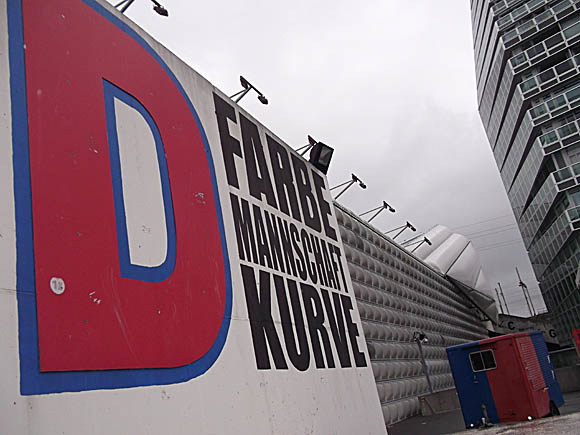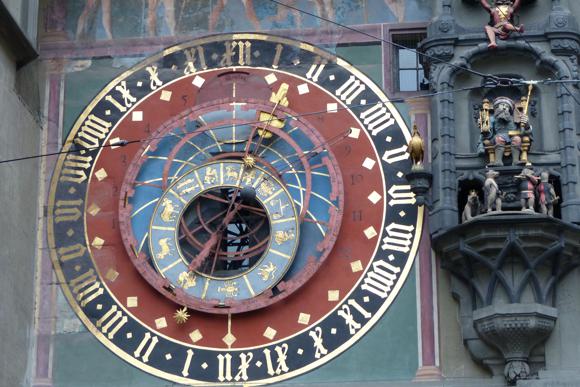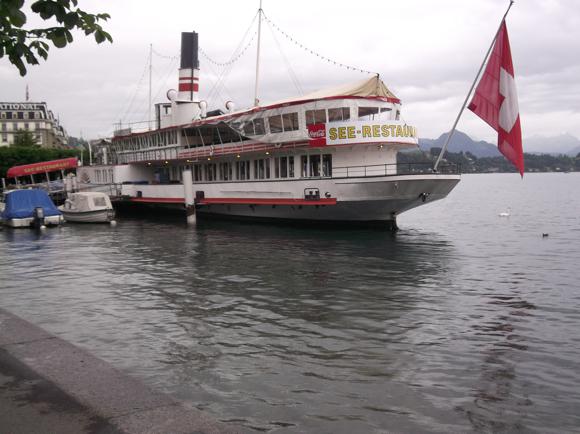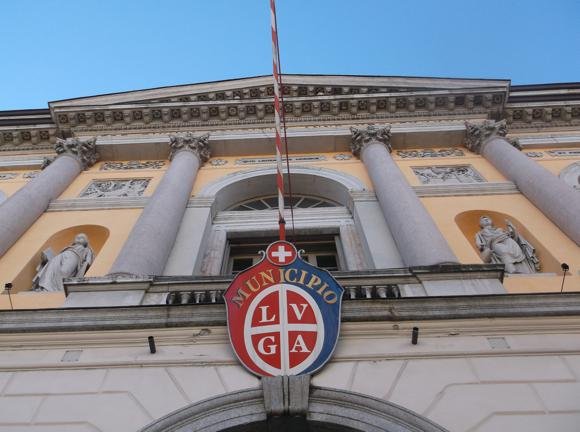Teams, tales and tips – a guide to the local game
Basel may adjoin France and Germany but this Rhine river port is the hotbed of Swiss football. St Jakob Park, home of eight-time consecutive champions FC Basel and stage for the 2016 Europa League Final, has the country’s fieriest atmosphere.
This has been put to the test with wins over Manchester United, Chelsea and Liverpool in the Champions League, and Tottenham, on penalties, in the Europa League. It was Chelsea, in fact, who then stopped FCB at the semi-final stage of that same tournament.
The ‘Joggeli’ was rebuilt for Euro 2008, staging the opening match and dramatic semi-final, Germany’s 3-2 win over Turkey.
Four months later, Basel faced their historic cousins FC Barcelona in the Champions League, a crushing 5-0 defeat at the Joggeli followed up with a creditable 1-1 draw at the Nou Camp against the champions-to-be.
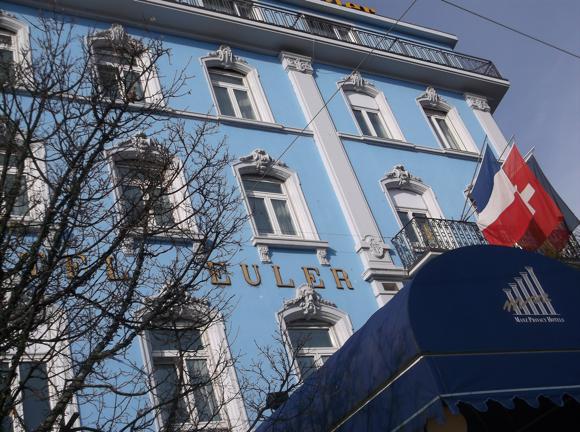
The two clubs were formed by the same man, Johannes (‘Hans’) Kamper, a young Swiss entrepreneur. On November 12, 1893, he happened to see a classified ad in the ‘National-Zeitung’, placed by a certain Roland Geldner, asking for like-minded sporting locals to meet and discuss forming a football club. The event would take place the following Wednesday, in the upper dining room of the Schuchmachern-Zunft restaurant at Freie Straße 52.
FC Basel were founded, Kamper an early club captain. Five years later, business took Kamper to Barcelona. There he stayed, learned Catalan and became Joan Gamper.
In 1899, using the same tactic, Gamper placed an ad in ‘Los Deportes’, asking for interested parties to form a football club.
Adopting the red-and-blue of FC Basel, FC Barcelona were formed soon afterwards, Gamper scoring more than 100 goals during the four years he played for them.

Back home, Basel didn’t really take off until the 1960s, becoming a regular on the European circuit by the 1970s.
Originally Basel played on the other side of the Rhine, at the Landhof Sportplatz. The St Jakob stadium was built for the 1954 World Cup, seeing 44 goals in six games. These included Hungary’s ominous 8-3 thrashing of West Germany, and the host nation dumping Italy out of the competition, 4-1.
With two goals in the last five minutes, and two from local boy Seppe Hügi, this was the game that established the Joggeli’s credentials as a proper football ground. Such crowd scenes had never been seen before in sleepy Switzerland.
In modern times, occasionally ugly incidents have erupted surrounding the fierce rivalry between Basel and Zürich, either Grasshoppers or FC Zürich.
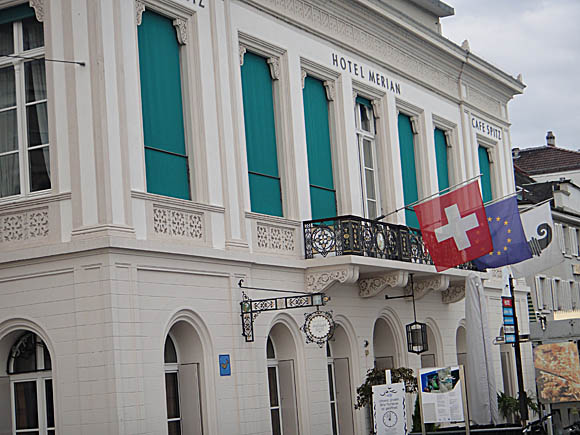
There is no inner-city rivalry within Basel itself. FC Concordia Basel are a farm team for FC Basel, playing in the fifth-tier 2.Liga Interregional and based across the main road from the Joggeli.
The only independent local club of any note, Black Stars Basel, date back to 1907. Established since 1928 at Buschweilerhof, the club from Allschwil reached the top flight in 1930 for a solitary season. Black Stars now run out in the fourth-tier 1.Liga.
The ground is at Nidwaldnerstraße 48, close to Lindenstraße and the Allschwil Lindenplatz stop on frequent tram 6, 12mins/eight stops from central Barfüsserplatz. Once there, you’ll find the Restaurant Buschweilerhof (Tue-Sun 10am-11pm), and the Black Stars shop (Wed & Fri 6.30pm-8pm, match days).
Getting Around
Arriving in town, local transport and timings

Basel-Mulhouse-Freiburg Airport is actually in France, 6km (4 miles) north-west of Basel. Bus 50 (SF4.70, every 8-10mins, 17min journey time) runs to the main Basel SBB (Swiss rail) station. Tickets are available from the desk in Arrivals or the machine at the stop outside the airport terminal.
Based near St Jakob, Taxi-Zentrale (+41 61 222 2222) charges about SF45 from airport to city.
German trains use Basel Bad station, on the other side of the Rhine. Officially you’re crossing the border when you walk from the station concourse to the platform, where Deutsche Bahn trains run as part of the German network.
City transport consists of trams and buses. A day pass is SF9.90, a single ticket SF3.80 but local hotels offer a Mobility Ticket, giving checking-in guests free use of public transport for the length of their stay.
The centre is enjoyably walkable.
Where to Drink
The best pubs and bars for football fans
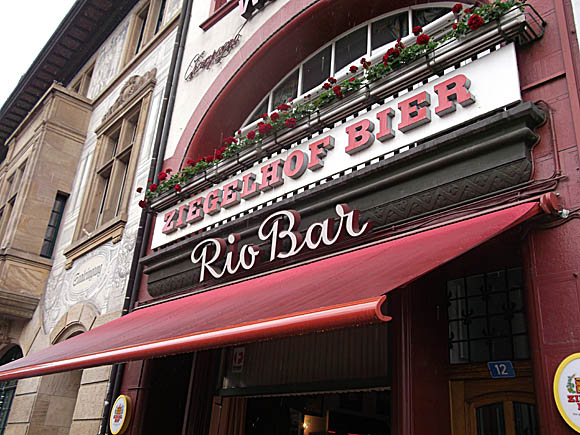


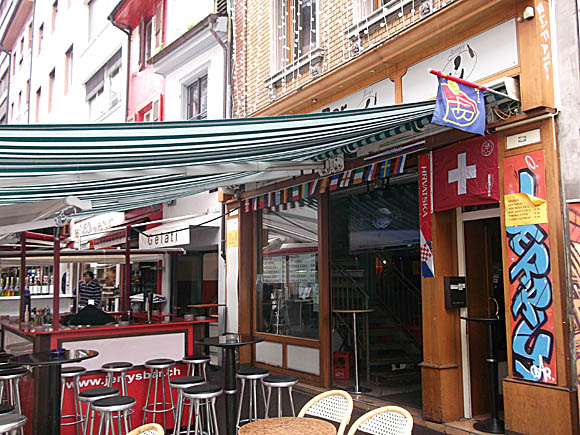
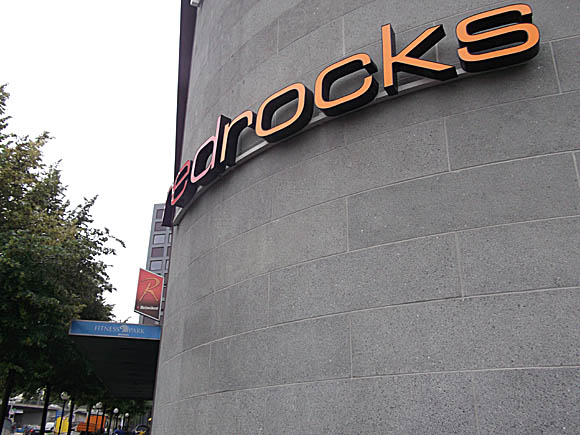

Barfüsserplatz is lined with restaurants and cafés – the timeless Rio (No.12) (easily) the best bar, the beerhall of Zum Braunen Mutz the best pub.
For TV sport, the Basel branch of the Swiss pub chain Mr Pickwick is central and displays seriously recherché retro football artefacts. Nearby Jerry’s is where the Swiss go to watch big matches. It’s also a decent late-night cocktail spot. The prominent Irish bar, big on sport, is Paddy Reilly’s near the station. It’s open from 4pm weekdays, 1pm weekends, and the basement bar is from 11pm. If you’re looking to mix with locals, nearby Red Rocks is a decent late-night bar/club.

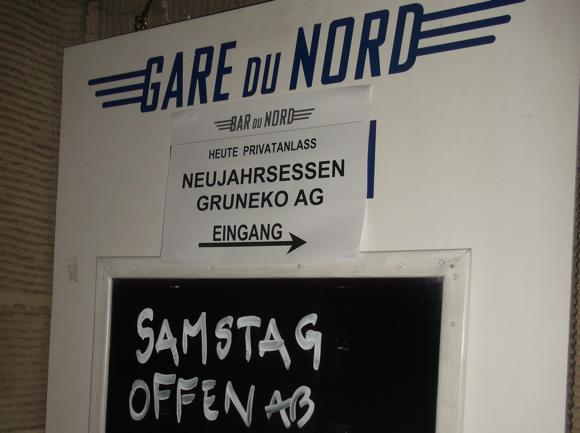

If you need a bar crawl, there’s a little hub where Rheingasse meets the bridge and over Greifengasse. On Rheingasse itself, Fischerstube is a homely old bar that serves its own Ueli lager – regulars take turns to play the piano. The restaurant is next door, and there’s a back beer garden.
At the German rail Basler Bad station, experimental music venue Gare du Nord has a separate bar for screening football, ideal before getting on your train into Germany.
Diagonally opposite, on the corner of Erlenstraße, Bahnhöfli is a friendly little bar-pizzeria with a separate room for TV games, decked out in FCB iconography.
Where to stay
The best hotels for the stadium and city centre
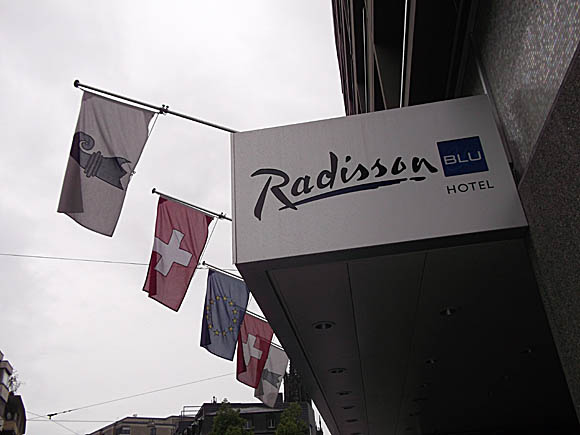

The Basel Tourist Office has a hotel-booking service.
There are no hotels near the stadium. Centrally located, and close to Aeschenplatz on the No.14 tramline that goes to St Jakob, is the Radisson Blu, with a pool, gym and prices to match. You’re in the banking quarter, after all.
Also central but more traditional (and much cheaper), the Stadthof comprises nine rooms and a restaurant in a landmark building dating back to 1295.





Picturesque, riverside Rheingasse is lined with hotels. The historic Hotel Merian am Rhein has balconied rooms overlooking the river.
Hotels surround the SBB station. These include upscale chains such as the Dorint as well as traditional railway hotels such as the Euler, the Schweizerhof and the Victoria that have been accommodating visitors for generations.
The conversion of the venerable Helvetia to the self check-in b-smart motel Basel, however, is a sign of the times.


